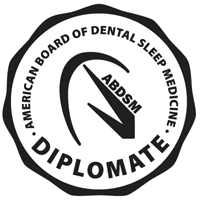Oral Devices – Sleep Apnea in Seattle
Oral device therapy – treatment for sleep apnea in Seattle and Mill Creek
For those with obstructive sleep apnea, just staying awake through the day can be a struggle. However, there are options available to help you sleep better and get your health back. One option is oral appliance therapy. This is a simple treatment that can have profound effects for sleep apnea sufferers. We offer this treatment for sleep apnea in Seattle and Mill Creek.
Oral appliance therapy involves a small device worn during sleep. It holds the jaw in a forward position, helping to keep the airway open and allow breathing. For many sleep apnea sufferers, the jaw collapses backward during sleep, closing off the throat. This may create the sound of snoring as air is forced through the smaller opening, or may completely stop breathing if the airway is closed completely. Simply by preventing the jaw from collapsing backward like this, snoring is reduced and breathing is maintained, allowing the patient to get better sleep. For those suffering from a mild to moderate sleep disorder, from snoring to UARS (upper airway resistance syndrome), oral appliance therapy is often the best treatment option to start with, because it’s noninvasive and relatively inexpensive, and works for many patients. It may be used on its own, or along with CPAP (continuous positive airway pressure).
Because obstructive sleep apnea is associated with several severe health conditions, it’s important to take the condition seriously. OSA is associated with:
- Coronary Artery Disease (more than 25% of patients with this disease have an obstructive sleep disorder)
- Hypertension
- Congestive Heart Failure (50% of patients with this disease are also diagnosed with sleep apnea)
- Stroke (Research shows that patients are at a 65% higher risk for stroke when diagnosed with obstructive sleep apnea)
These are serious health conditions that can cause irreversible damage to the body. However, treatment of OSA may help to minimize the risk.
Oral device therapy is growing in popularity
Currently, there are over 80 different oral devices available for patients with variable forms of sleep apnea as well as for those who have not seen sufficient results from CPAP therapy. The American Academy of Sleep Medicine recommends including oral device therapy when CPAP is viewed as unreliable and long-term relief of symptoms is the primary goal.
Oral devices are among the most comfortable forms of treatment for sleep apnea. There are some patients who simply can’t tolerate any other form of treatment. For those who tolerate CPAP, oral device therapy is often used in conjunction with CPAP for improved results. The use of these two forms of treatment together is growing among both men and women and is effective in many cases.
For oral device therapy to be effective, the device needs to be correctly fitted to the patient. That’s why these devices aren’t available over the counter. A dentist, oral surgeon, ENT doctor, or other professional experienced in sleep medicine must prescribe and fit the device, and follow up to adjust if necessary. Talking to a sleep medicine professional also allows you to be aware of all of your treatment options, so you can choose whether you prefer oral device therapy or another treatment.
Choosing the right oral device for you
We treat many patients with sleep apnea in Seattle and Mill Creek, and oral devices are often part of the treatment. There are several types of devices to choose from. They may hold the tongue in place or reposition the lower jaw forward, or both. This provides stability to prevent interruption of breathing during sleep. While the majority of patients do gain satisfaction and relief from symptoms with oral devices, there are also other treatment options available. We work with each patient to determine which option is best for them.
Most major insurance providers cover oral device therapy for sleep apnea
When it comes to health insurance, things can quickly become confusing. However, in most cases, oral device treatment for sleep disorders is covered by major health insurance providers.
Do Medicare and Medicaid approve this form of therapy?
Yes, just as with private insurance, Medicare and Medicaid do cover this form of therapy when there is a proven medical need for it. The criteria for approval are similar to those for CPAP therapy; you must be proven to have a sleep disorder that interferes with your general health and daily functioning.
What records are necessary to acquire a prescription for a dental appliance?
Your provider might need to file several health records and/or forms to ensure your insurance coverage approves you for an oral device. Usually, your provider’s office staff will take care of doing this, and you won’t have to worry about it. For our patients receiving treatment for sleep apnea in Seattle, we take care of the paperwork, so the burden on you is minimal. Most family physicians or a sleep care specialist are authorized by insurance companies to prescribe an oral device.
Is a CPAP trial necessary before a patient can have access to oral device therapy?
Although many patients do try CPAP first, most insurance providers don’t require a patient to go through CPAP therapy before being placed on oral device therapy. After talking with your doctor about the benefits and risks of each type of therapy, you can choose the one that you believe would be best for you.





